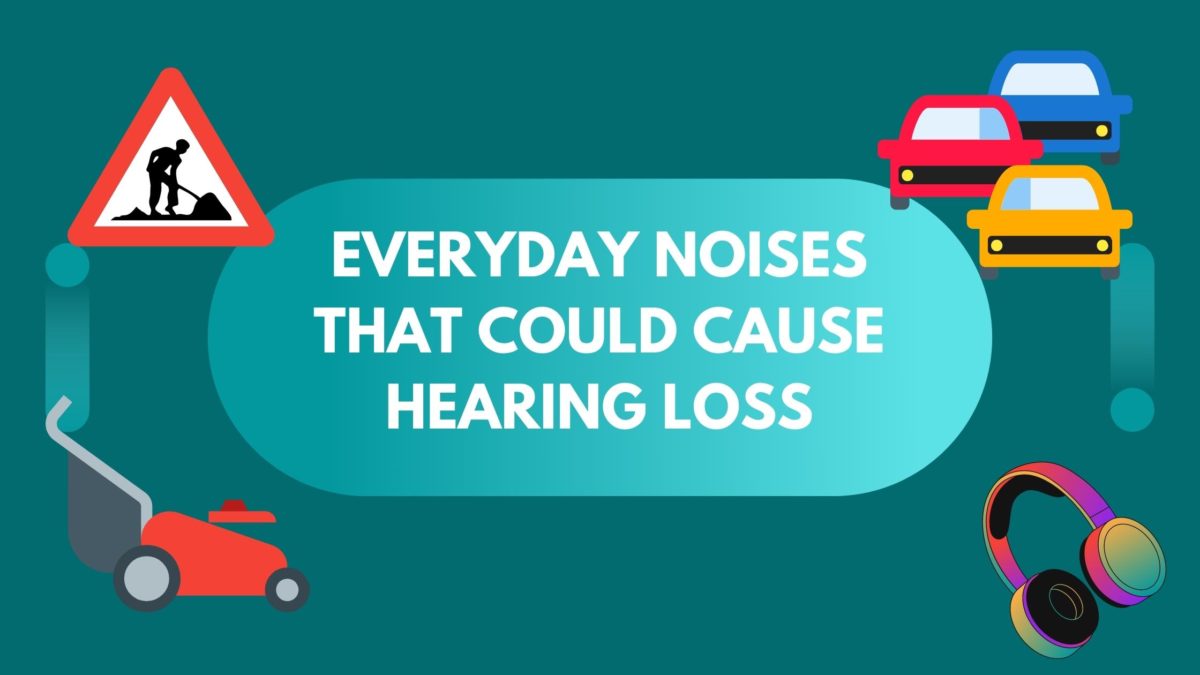
Everyday Noises that Could Cause Hearing Loss
Do you have hearing loss? You may have it and not even know it. Hearing loss often occurs slowly over time, so subtly that you don’t even realize it’s occurred until years later as you struggle to hear in even the most ideal of situations. While hearing loss is often associated with the elderly, affecting half of all those over 75 years or older, it can affect people of any age. It’s estimated that 1 in 5 teens suffer from noise-induced hearing damage!
Sensorineural Hearing Loss
By far the most common type of hearing loss, sensorineural hearing loss is caused by damage to the structures in your inner ear or your auditory nerve and is the cause of more than 90 percent of hearing loss in adults. Damage can be caused by several factors such as impact to the head, exposure to certain airborne chemicals, certain medications, changes to the ear as we age, and commonly exposure to loud noise. Sound is measured in decibels and any decibel which surpasses 85dB has the potential to cause lasting hearing damage. It’s not only the level of exposure but the length. At 85dB, it takes 8 hours of constant exposure for damage to occur within the inner ear. However, as the decibel level increases, the length of time it takes to cause hearing damage quickly shrinks. At 95dB hearing damage occurs in under an hour!
Sources of Damaging Sound
There are common places where people are thinking of their hearing. For instance, in the workplace, due to increased awareness on an institutional level, there are protections in place to protect hearing. OSHA states that an employer will provide hearing protection to all employees if a need exists, at no cost to the employee. A workplace is a dangerous place for hearing with shifts most commonly lasting for 8 hours or more – plenty of time for hearing damage to occur, day after day, week after week, year after year. It’s important to take advantage of hearing protection provided at work. Wear it diligently and correctly. However, there are other locations in our daily life where we are exposed to dangerous decibels and may not always be prepared.
Commute
On your way to work it’s important to pay attention to the sounds around you. As you drive to work you may encounter loud trucks, motorcycles, cars with broken mufflers, and occasional sirens. Highway traffic can easily average out at 95dB on a busy highway. It’s important to keep your windows rolled up if you have AC on hot days. While the breeze may feel nice, any daily commute averaging around 50 minutes can translate into a gradual loss of hearing.
Car Stereo
It’s not just traffic that can be an issue. On your way to work it may feel great to blast the stereo. Enjoy your favorite song or catch up on your favorite podcast. However, when the stereo is consistently too loud it can quickly add up to hearing issues in the future. Mix the stereo volume with the sound of an open window and it’s common for people to turn up to volume to hear clearer, creating dangerous decibels. As a general rule keep your car stereo turned down to no higher than 60% of its potential volume to protect your hearing in the long run.
A Night at the Movies
There is nothing like watching a movie in the theater. The big screen and the enhanced digital surround sound create an immersive experience. However, it’s important to watch the decibel level, especially for fans of action/ adventure and science fiction. Noise levels at a movie theater often fluctuate between 74 and 104 decibels.
Catching a game at the Stadium or Live Music
Now that many of us are attending live sporting events and concerts again it’s important to pay attention to the noise level. For instance, at an arena full of shouting fans and loud music, as your team scores, the noise could swell to levels as high as 110dB -enough to damage your hearing in 15 minutes! Similarly, going to a live concert with booming sound systems and multiple conversations at once can leave your ears buzzing. If you leave a concert or live event with buzzing in your ears, it’s a clear sign of hearing loss.
Protect Your Hearing
Hearing protection depending on the model can lower the decibel level by 15-33dB- enough to make a significant difference. Monitor the decibel levels in the places you frequent and take precautions if you detect sounds that surpass 85dB. If you suspect you already have some degree of hearing loss, it’s important to have it diagnosed so you can find proper treatment. Schedule a hearing exam with us today.
